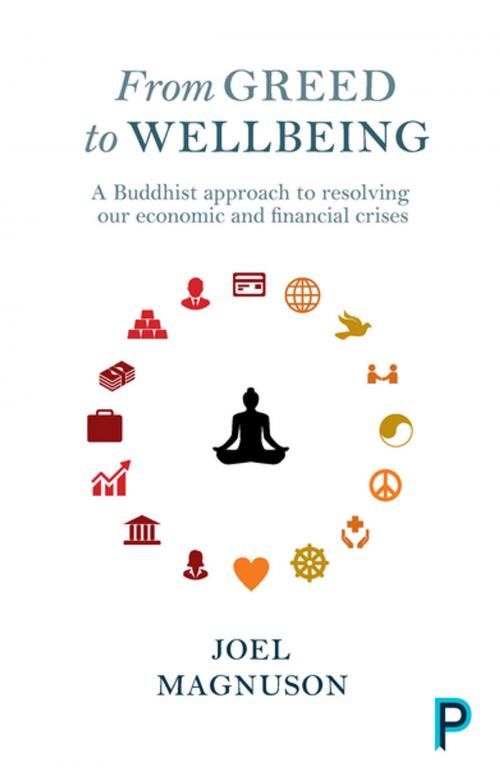From greed to wellbeing
A Buddhist approach to resolving our economic and financial crises
Nonfiction, Social & Cultural Studies, Political Science, Politics, Economic Policy, Business & Finance, Economics, Economic History| Author: | Magnuson, Joel | ISBN: | 9781447318958 |
| Publisher: | Policy Press | Publication: | November 16, 2016 |
| Imprint: | Policy Press | Language: | English |
| Author: | Magnuson, Joel |
| ISBN: | 9781447318958 |
| Publisher: | Policy Press |
| Publication: | November 16, 2016 |
| Imprint: | Policy Press |
| Language: | English |
Despite our fitful attempts over decades at reform, the global financial system seems caught in cycles of boom and bust, instability, and scandal. In this timely new book, Joel Magnuson builds on the classic works of E. F. Schumacher and other kindred spirits to provide a Buddhist economics perspective on this recurring pattern, and offers new possibilities for real change. The book centers on the belief that greed, aggression, and delusion (Buddhism’s “three poisons”) are embedded within our financial institutions and that they perpetuate the continued widespread attachment to endless economic growth and financial accumulation that are responsible for social and ecological malaise. Arguing that mainstream economics fails to adequately address this cycle, Magnuson presents a new framework of Buddhist economics, helping readers gain a deeper understanding of current economic problems and offering a course toward genuine wellbeing.
Despite our fitful attempts over decades at reform, the global financial system seems caught in cycles of boom and bust, instability, and scandal. In this timely new book, Joel Magnuson builds on the classic works of E. F. Schumacher and other kindred spirits to provide a Buddhist economics perspective on this recurring pattern, and offers new possibilities for real change. The book centers on the belief that greed, aggression, and delusion (Buddhism’s “three poisons”) are embedded within our financial institutions and that they perpetuate the continued widespread attachment to endless economic growth and financial accumulation that are responsible for social and ecological malaise. Arguing that mainstream economics fails to adequately address this cycle, Magnuson presents a new framework of Buddhist economics, helping readers gain a deeper understanding of current economic problems and offering a course toward genuine wellbeing.















